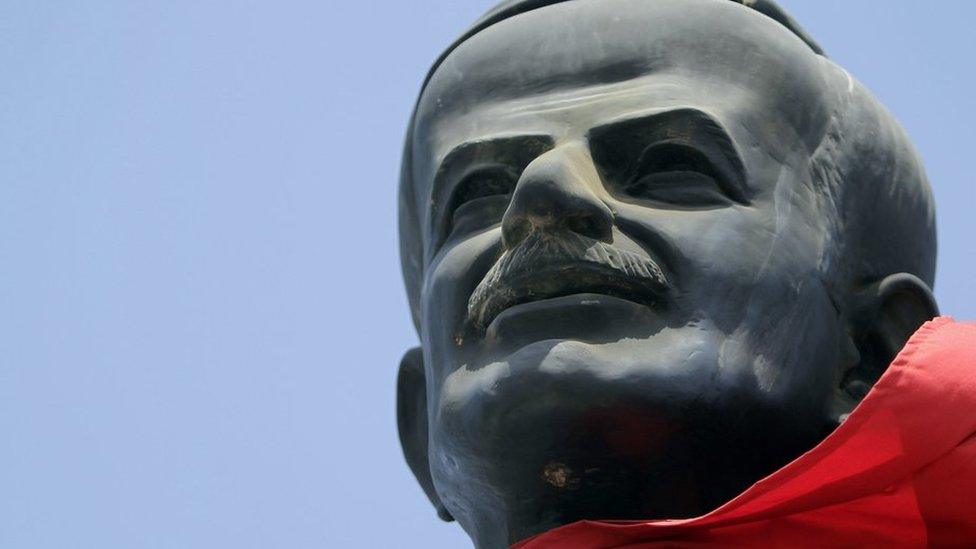Will Idlib spell the end of Syria's war?
- Published
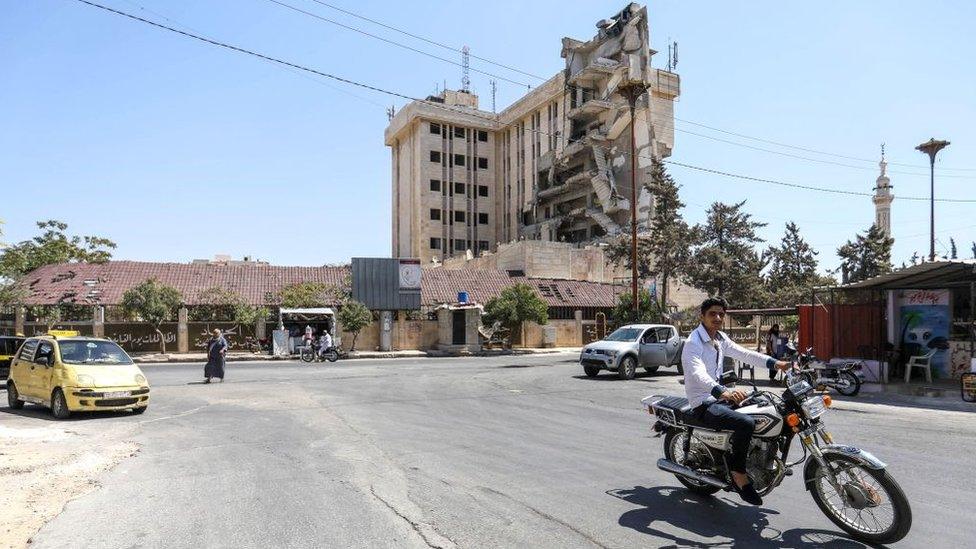
Syria's north-western province of Idlib is the last major area under rebel control. Over the course of the fighting it has become home to huge numbers of internally displaced people.
Around three million are now concentrated in this largely rural region. A series of deals have allowed rebel fighters from other areas to move there too, as the Syrian government has consolidated its hold over large swathes of the country.
Now President Bashar al-Assad is turning his attention towards Idlib.
His forces and their allies are massing. There has also been a significant Russian naval build-up off the Syrian coast. Many of its vessels carry the sort of land-attack missiles that could add weight to the Syrian government forces' firepower.
For the Syrian government an offensive would mark the climax of President Assad's efforts to regain control of his country and to shatter the organised opposition to his rule. But aid agencies and the United Nations fear a major humanitarian catastrophe could be looming.
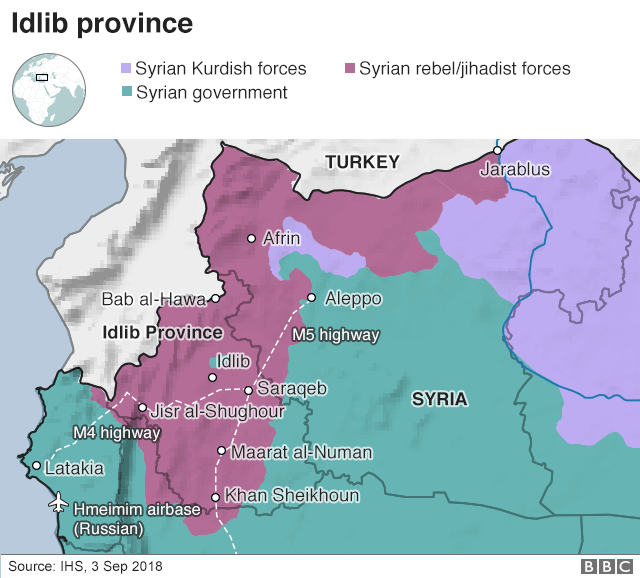

What is at stake is nothing less than the future shape of the Syria that President Assad will control. But this is not just a battle between his government forces and the rebels. Two other countries, Russia and Turkey, are also intimately involved.
Frustrated by US policy towards Syria and alarmed at the tide of refugees that had flowed across its own borders, Turkey sought with Russia, Iran and the Syrian government to establish a small number of so-called "de-escalation zones".
An agreement, aimed to calm the fighting and introducing an element of stability, called for the ending of hostilities between Syrian government and rebel forces in four, mainly opposition-held areas of the country. Russia, Turkey and Iran were to act as guarantors, sending troops and monitors to police the zones.
But all but one of these zones have now fallen to government forces. Idlib is the last one remaining.
How Turkey would complicate an offensive
Turkey has armed a number of rebel militias in Syria and has made a significant political and military investment in Idlib.
Additionally, it has sought to develop some kind of understanding with the dominant rebel group in the province, Hayat Tahrir al-Sham or HTS (formerly known as Jabhat al-Nusra, which was closely linked to al-Qaeda.) This is, though, a sometimes bumpy relationship.
Turkey, as part of its role as guarantor of the Idlib de-escalation zone, has also established about a dozen observation posts in Syrian rebel territory. These have been beefed up and are now essentially small military bases in their own right.
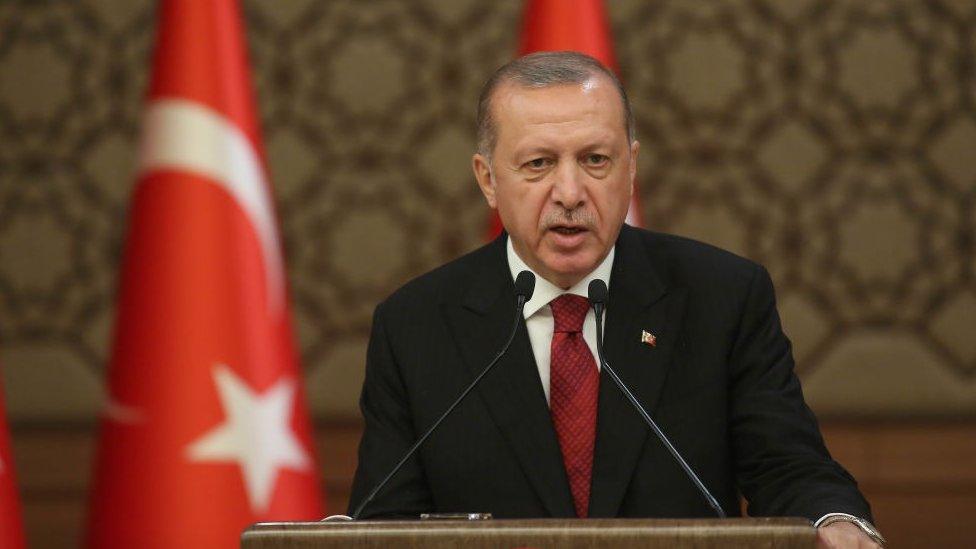
Idlib is a focus of friction between President Erdogan's Turkey, Syria and Russia
The Ankara government has described a major attack on Idlib as a "red line" that should not be crossed. Nobody knows quite what Turkey might do if a major regime offensive is unleashed.
The strains in the alliance of convenience between the Syrian government and Turkey might also be reflected in tensions between Turkey and Russia.
Relations between the two countries have been complex. In November 2015 Turkey shot down a Russian warplane that it said had intruded into its airspace from Syria. But in September 2017 Turkey signed a deal with Russia to arm its forces with Russian S-400 anti-aircraft missiles.
Then, in March 2018, units of the Turkish-backed anti-Assad group, the Free Syrian Army, took control of the Syrian Kurdish city of Afrin.
But Idlib could also open up difficulties between the Syrian government and Moscow.
What does Russia really want?
Russia is the other key overseas player in this drama. It effectively saved President Assad by intervening in the civil war. Russian air power along with Iranian-backed militias and military advisers on the ground enabled him first to stabilise his worsening situation and then to go onto the offensive.
But what does Russia think of the Idlib situation? On the face of it Russian spokesmen appear to be against a major attack, preferring a negotiated settlement for the province. Russia is eager to scale down its military role in Syria, though its naval build-up in the eastern Mediterranean might suggest otherwise.
But, as ever in Syria, things are even more complex. Russia may be unable to dissuade its Syrian ally from an Idlib offensive.
A government assault could amount to a number of different things. These could range from an all-out onslaught to a more restricted effort to nibble away key pieces of territory, to increase pressure on the rebels in those areas that remain.
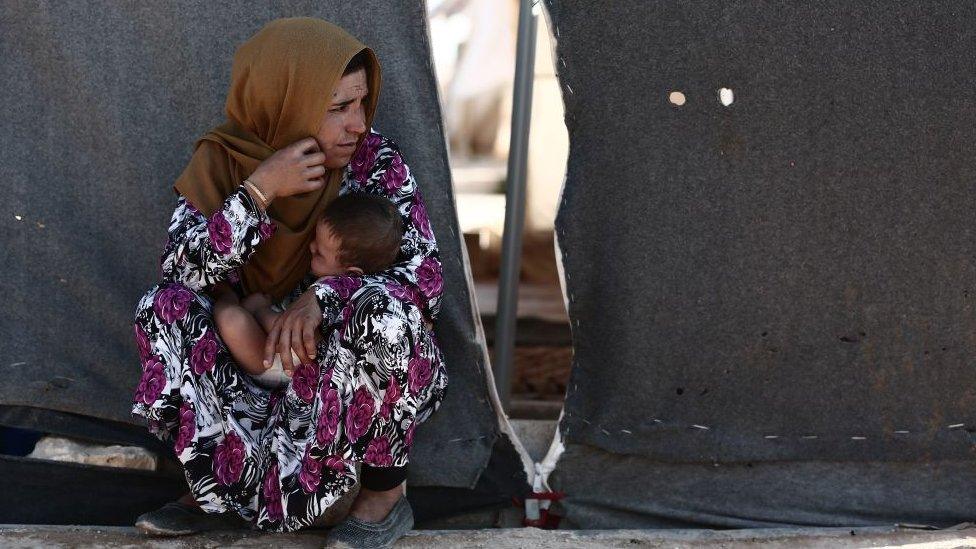
More than half of Idlib's population have either fled or been evacuated there from other parts of Syria
Russia retains its enthusiasm for combating "terrorists" wherever they may be, and there is no doubt that some of the hardcore elements of the rebels have been forced into Idlib province following setbacks elsewhere.
The humanitarian consequences of any Idlib offensive would be serious. There are fears, too, that chemical weapons might again be used to terrorise the local population into submission. But the fall of Idlib would not be the end of Syria's nightmare.
The Assad regime's hold over much of the country could remain shaky, with significant areas staying beyond central control. The tasks of reconstruction and resettlement are huge and costly: problems with which nobody seems ready to engage.
What began as a local uprising against an unpopular regime has mutated into a regional struggle. It has drawn in proxies for organisations like al-Qaeda and the Islamic State group.
But above all Syria has become a cockpit for wider international tensions, with Russia, Turkey, Iran, Israel, the Gulf states and the US all seeking their own advantage.
These external pressures will not go away after an Assad victory. They may even get worse. The US, Israel, and Washington's Gulf allies are now all intent on seeing Syria as yet another battlefront in the strategic struggle against Iran.
- Published6 July 2018
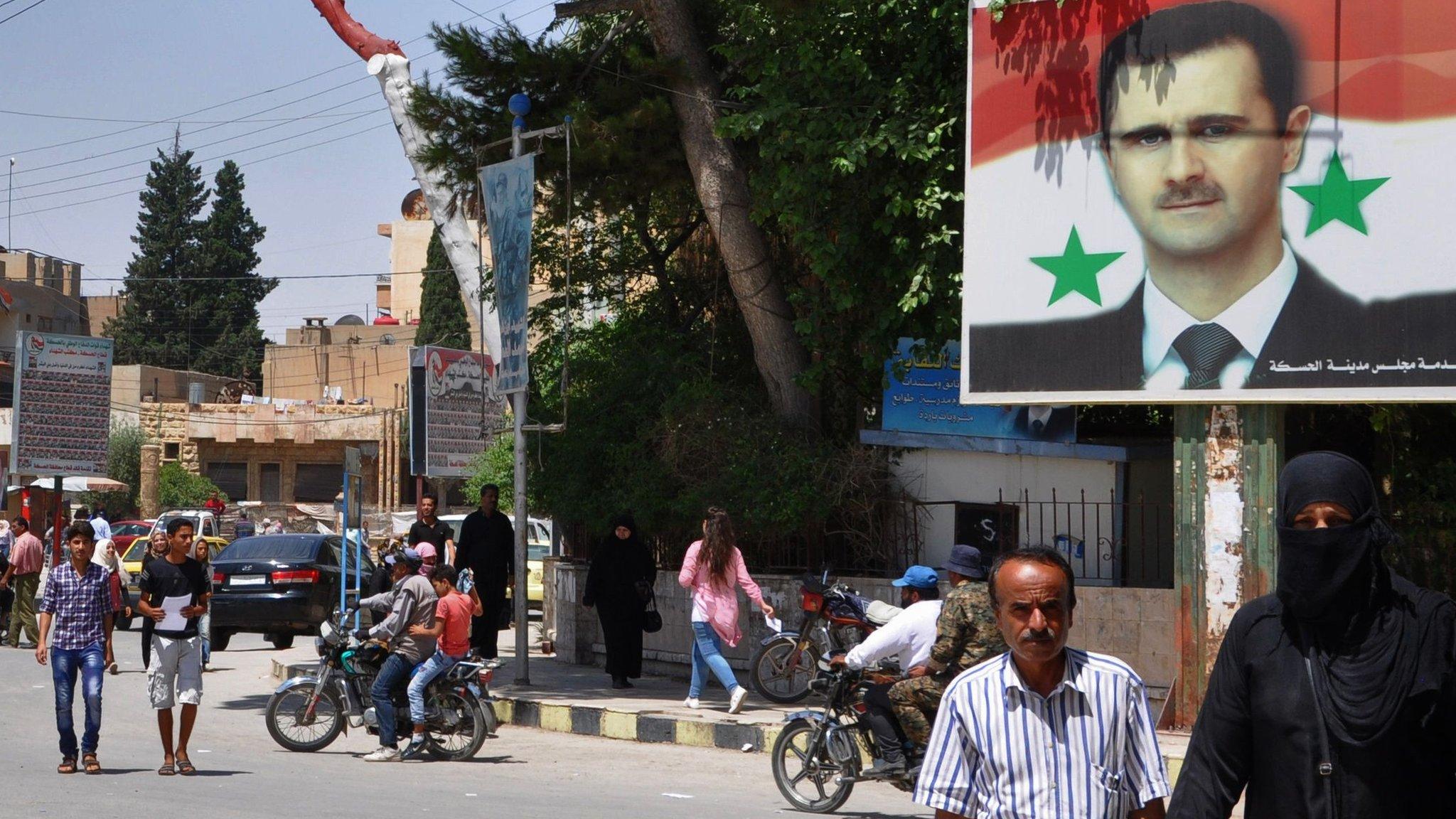
- Published14 January 2019
